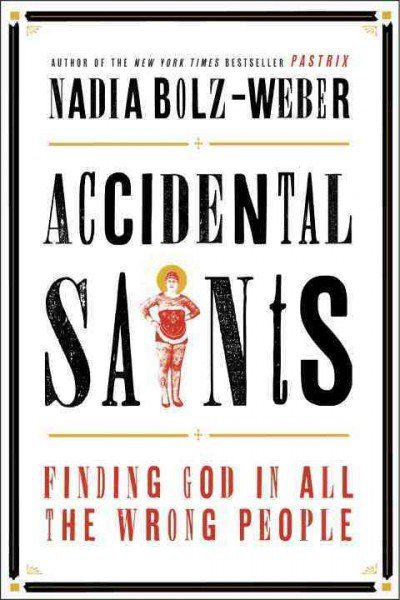
In her latest book, Accidental Saints: Finding God in all the Wrong People, Nadia Bolz-Weber has a beautiful reflection on the Atonement. Nadia writes about failing a member of her church during his time of need. She confesses to a friend and fellow pastor named Caitlin. After she confesses, Caitlin responds, “Nadia, Jesus died for our sins. Including that one.”
“Jesus died for our sins.” The phrase is enough to make many progressives like myself cringe. But, in her characteristic style of raw honesty, Nadia flips the statement upside down so that our eyes are opened to the transformative grace of God. She writes,
It feels like a strange and abstract thing to say. “Jesus died for your sins.” And I’ve squandered plenty of ink arguing against the notion that God had to kill Jesus because we were bad. But when Caitlin said that Jesus died for our sins, including that one, I was reminded again that there is nothing we have done that God cannot redeem. Small betrayals, large infractions, minor offenses. All of it.
Some would say that instead of the cross being about Jesus standing in for us to take the really bad spanking from God for our own naughtiness (the fancy theological term for this is substitutionary atonement), what happens at the cross is a “blessed exchange.” God gathers up all our sin, all our broken-ass junk, into God’s own self and transforms all that death into life. Jesus takes our crap and exchanges it for his blessedness.
Nadia describes perfectly what the nonviolent Atonement is all about. God doesn’t respond to human sin and violence with God’s own violence. God didn’t kill Jesus on the cross; humans did. The Atonement is about God in Christ absorbing human violence and exchanging it with God’s love.
On the cross, we discover that God would rather die from our violence than inflict a violent death upon anyone. In other words, Jesus died for our sins in order to transform our understanding of God – God has nothing to do with violence, but everything to do with transforming “all that death into life.” As Nadia claims, that’s how “Jesus takes our crap and exchanges it for his blessedness.”
There is so much to recommend about this book, but what makes Accidental Saints so engaging is Nadia’s vulnerability, inspiring stories, and ability to connect life events with a grounded faith. Brian McLaren said it well in his endorsement, “This is a collection of stories about how liturgy (who would have imagined?), ritual (what?), church (really?), and a bunch of flawed people (like us?) can catch the light of grace and catch fire with the beauty of God. For so many reasons, you really should read it.”
I wholeheartedly agree.
Stay in the loop! Like Teaching Nonviolent Atonement on Facebook!











